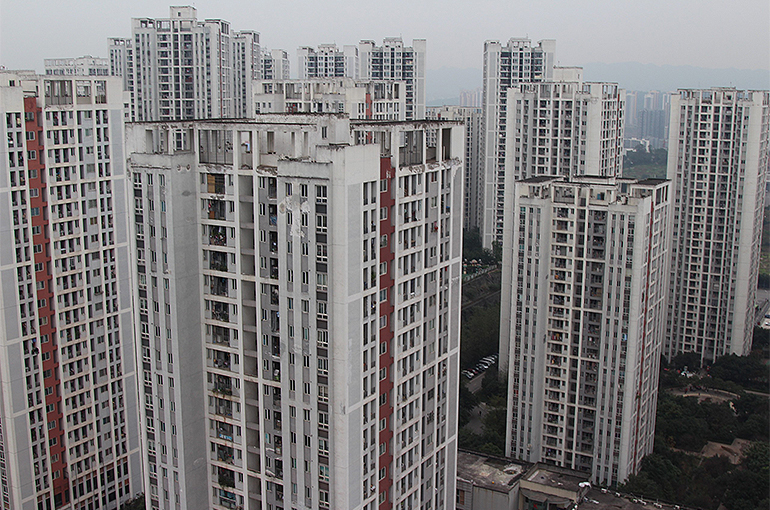 Many Chinese Cities Ramp Up Measures to Speed Up Pre-owned House Sales
Many Chinese Cities Ramp Up Measures to Speed Up Pre-owned House Sales(Yicai) Nov. 29 -- At least 16 Chinese metropolises are rolling out more measures, such as cutting taxes and offering subsidies, to help people sell their second-hand properties in order to buy a new one and bolster the sluggish newly built housing market.
Four cities in eastern Shandong province, seven cities in eastern Jiangsu province and four cities in eastern Zhejiang province as well as one city in southern Guangxi Zhuang Autonomous Region have issued policies since early June to encourage the sale of lived-in houses to help potential buyers of new apartments sell the properties they are living in.
The policies differ from city to city but in general they aim to shorten the time period between when a potential buyer puts down a deposit for a new home and when he or she sells his or her old ones. The measures include cutting or canceling taxes on the sale or offering subsidies to real estate developers, agencies and individuals.
The new policies have made the sale of second-hand houses smoother in some places, but it is still difficult to sell a pre-owned home as there are so many up for sale that closing a deal takes a very long time, some real estate agents told Yicai.
A lot of potential buyers of second-hand homes have an unstable income amid the economic slowdown and are very cautious about buying a house, so it is difficult to make a sale, Zhang Hongwei, founder of Jingjian Consulting, told Yicai.
Some small cities have a lot of newly built housing on sale and it is even harder to shift pre-owned properties in these cities, he added.
A number of government-funded platforms and state-owned enterprises are proposing policies to encourage the buying-up of second-hand homes to help reduce the glut. For example, a document released by the city of Lianyungang in Jiangsu province said that it plans to purchase pre-owned homes and turn them into subsidized housing for those in the low-income bracket or into public-owned homes to attract talents from outside the city.
“For local governments to buy second-hand properties they need to be in a strong financial position so this is only a tentative approach and is unlikely to be adopted widely,” Zhang said.
Long-term rental apartment operators should buy and manage second-hand houses, he said, “But I’m afraid it is only feasible in the bigger first-tier and second-tier cities because the rental demand in third- and fourth-tier cities is not large enough,” he added.
This approach is hard to implement as the price of pre-owned homes is still high and so buyers are unlikely to make money by renting them out, a real estate investor told Yicai.
Editors: Tang Shihua, Kim Taylor